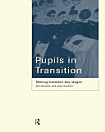The Public Understanding of Assessment
এই ই-বুকের বিষয়ে
However, educational assessment is made up of many layers of complexity, which are not always clear to the general public, including teachers, students, and parents, and which are not easily understood outside of the expert assessment community. These layers may be organized in highly co-dependent relationships that include reliability, validity, human judgment, and errors, and the uses and interpretations of the various types of assessment. No-one could reasonably argue that the principles and complexities of educational assessment should be core learning in public education, but there is a growing realization that trust in the UK assessment system is under some threat as the media and others sensationalize or politicize any problems that arise each year.
This book offers the first comprehensive overview of how the general public is considered to perceive and understand a wide variety of aspects of educational assessment, and how this understanding may be improved. This book was originally published as a special issue of the Oxford Review of Education.
লেখক সম্পর্কে
John Gardner is a Professor of Education and Senior Deputy Principal of the University of Stirling, UK. His research interests include policy and practice in all sectors of education, particularly in relation to assessment. He has over 120 academic publications and has authored or co-authored seven books, including the most recent editorship of the four-volume Assessment in Education (2014). From 1994-2010, he was a member of the globally influential Assessment Reform Group, and he is currently a visiting professor at the Oxford University Centre for Educational Assessment. He is a fellow of the Chartered Institute of Educational Assessors, and a fellow of the Academy of Social Sciences. In 2011, he completed a two year term as President of the British Educational Research Association, and from 2011-2014, he was a member of the Education panel of the Research Excellence Framework, REF2014.







